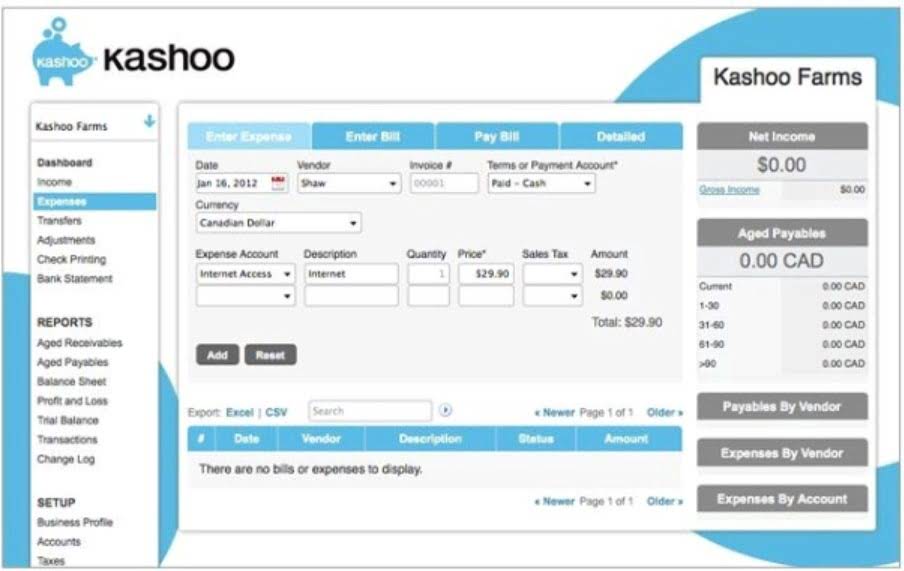14 octubre, 2021
Content
- Taxes 101: How to pay taxes when Dropshipping
- File & pay taxes
- Scenario 2: Debbie Drop Shipper collects the sales tax from Ron Retailer
- How Do You Calculate Sales Tax when Selling Online?
- Dropshipping Source Taxes
- What Taxes Do I Need To Pay When Dropshipping?
- How Do Tax Rates Work with Dropshipping in Multiple States?

This first sale is, most likely, a “sale for resale” from your vendor’s perspective. Your vendor is billing you for the purchase price of the items your company has purchased and had delivered to your customer. There is a transfer of title from your vendor and your company at the moment the goods are delivered to your customer.
If the customer is located in Virginia, no matter how the sale is made, through traditional shipping or drop shipping, you are responsible for collecting sales tax, not the vendor. In general, if you have nexus with a state, you’re responsible for collecting and remitting applicable sales tax on sales to customers within that state. That’s true whether you use a drop shipper or deliver some other way.
Taxes 101: How to pay taxes when Dropshipping
Today, you may need to pay sales tax in a state that you don’t live in. When you make your purchase from the supplier, you need to provide them your complete exemption certificate. That’s what resale certificates or exemption certificates are for. In that case, although you couldn’t charge the end-customer a sales tax, the supplier will have to charge you as the dropshipper a sales tax. Because although they’re selling the product to you, they’re shipping it to your customer.
We’ll first need to collect it from customers and later pay it to the government. To be sure, it’s best to seek professional advice from an accountant if you need assistance when dealing with dropshipping taxes. Instead, they should realize that the particular geographic and financial circumstances of each trading partner in the drop shipping equation influences the tax liabilities of everyone else — including customers.
File & pay taxes
What is important for sellers to know before embarking on a drop shipping journey? For one, understanding how sales tax factors into your drop shipping strategy. It’s important to consider drop shipping when choosing sales tax software, if you currently participate in an drop-ship program or plan to in the future. We’ve listed some of the pitfalls a retailer can experience with drop shipping, but there are other steps that can protect businesses from tax liabilities when drop shipping. Once you get the hang of it, dropshipping taxes will become just another cog in the machine that is your dropshipping business. When in doubt, invest in a professional tax advisor that specializes in eCommerce.
Drop shipping is one of the more complicated aspects of sales tax law. Even the most seasoned sellers often find it difficult to keep track of state rulings and sales tax nexus definitions. That is, unless the Retailer can provide the Supplier and/or the state with an exemption certificate.. As with anything sales tax related, every state has their own rules and procedures for obtaining exemption certificates.
Scenario 2: Debbie Drop Shipper collects the sales tax from Ron Retailer
This post is to be used for informational purposes only and does not constitute legal, business, or tax advice. Each person should consult his or her own attorney, business Small Business Bookkeeping Services advisor, or tax advisor with respect to matters referenced in this post. Bench assumes no liability for actions taken in reliance upon the information contained herein.
Unfortunately, drop-shipments are extremely complex when it comes to sales tax. Shopify automatically collects the right amount of sales tax on an order. This is handy as in some states the amount of sales tax you’re required to pay varies depending on which city your customer lives. For now, you only need to collect and pay sales tax on orders made https://simple-accounting.org/bookkeeper360-app-xero-integration-reviews/ in states that you DO have nexus in (which for most people, will only apply to the state that they live in). There is the rare case, like in the US, where you have to pay income tax to both the federal government and your local state. However, this is most likely irrelevant to you if you live outside the US, as most countries don’t have states.
How Do You Calculate Sales Tax when Selling Online?
Dropshipping is an e-commerce technique that allows online entrepreneurs to sell products from their business, without ever owning or storing the product themselves. That’s a great Shopify feature since it boosts your compliance to tax rules and ensures you’re charging tax at the correct rate, directly at PoS. However, that doesn’t mean you shouldn’t pay your taxes if you don’t get the form. As we mentioned before, every single income you make through Shopify payments or PayPal is subject to taxes. To start with, we have to learn how to differentiate the terms collect and pay taxes.

